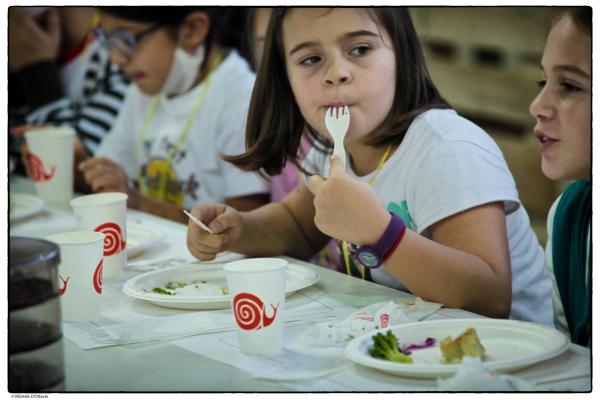In the early 1990s, Italian chemist and Novamont Chief Executive Catia Bastioli invented Mater-Bi – a biodegradable plastic made from agricultural products. The goal: plastic carrier bags that will turn into compost, so that they can also be used as a bin bag for collecting organic waste. One reason, she explained, was Italy’s delicate environment, consisting of lots of mountains and coast and little flat land.Since the invention, public authorities have stepped in. Cities in northern Italy, such as Novara and Turin, banned non-biodegradable plastic bags.In 2011, Italy became the first country in Europe to ban them – ordering people either to use biodegradable plastic bags or bring their own carriers. As a result, the number of disposable bags used in supermarkets has halved, and the amount of waste sent to landfills is down by a fifth.“‘You cannot start to rule all the bioeconomy from the top level … we need to see what case studies can teach us.’Catia Bastioli, Chief Executive Officer of Novamont SpA, ItalyBiological plastic bags themselves won’t transform the European economy. But their success is a concrete example of how the bioeconomy can take off – through a combination of invention, public pressure over a problem, and lawmaking. As policy-makers encourage research projects and set up cooperation networks to try to ignite the bioeconomy, living examples of biotech business successes can serve as models.‘You cannot start to rule all the bioeconomy from the top level,’ Bastioli told the EU’s Bioeconomy Conference in Dublin in February. ‘We need to see what case studies can teach us.’The new plastic bags are a particularly good lesson in how to proceed, because they helped do more than just reduce litter. In parallel to the plastic bag rules, Italy also reformed its treatment of compost and waste.The biodegradable plastic bag is just one example of what one can do with biopolymers coming from agricultural products. © NovamontThe biodegradable plastic bag is just one example of what one can do with biopolymers coming from agricultural products. © NovamontA 2006 law ruled that compost has to be collected separately, either using bins or biodegradable bags. Since then, the amount collected has risen from 2 million tonnes to 4.2 million. The composters’ association created a quality mark, and today 78 % of high-quality compost is produced from waste collected by local governments.To make the biodegradable plastic bags, a network of biorefineries and other industrial facilities related to bioplastics has sprung up across Italy. Total investments are estimated at more than EUR 1 billion (2013-2016) and around 3 000 direct jobs (up to 2016) are expected to be created in the country, according to Novamont’s Bastioli.‘The real initial seed is not really important for its nature but for what it’s able to create in terms of interconnection and development,’ she says. ‘This is the only way to speed up the growth of the bioeconomy.’Last March, the European Commission launched a consultation concerning the new European Strategy on Plastic Waste in the Environment. Among other issues, it addresses biodegradable plastics and bio-based plastics.
This article was originally published in Horizon, the EU Research and Innovation magazine.
Add to favorites:
Share:
Listing Description
Video
Documents
No documents available.
Ask KETMarket to make a contact
Connect with the Listing Owner!
💬 Please log in now to askKETMarket to make a contact. Not a member yet? Sign up for free and start connecting today!
Video
Related Funding and Finance Opportunities
Unlock Exclusive Funding Opportunities!
🔑 Get instant access to tailored funding opportunities that perfectly match your needs. This powerful feature is exclusively available to our premium members—helping you save time, stay ahead of the competition, and secure the right funding faster.
Upgrade to Premium now and never miss an important opportunity again! Already a premium member? Log in here to explore your matches.
Related Innovation Offers
Discover Tailored Innovation Offers!
🚀 Gain access to technology solutions that match your specific needs and interests—carefully selected to support your innovation goals. These offers are exclusively available to our premium members, helping you identify relevant technologies faster and start the right conversations with potential partners.
Upgrade to Premium now and explore your personalized technology matches today! Already a premium member? Log in here to view your tailored offers.
Related Knowledgeable Resources
Discover More with Premium: Related Knowledge Resources
🔒 You’re missing out on expert-curated knowledge specifically matched to this topic. As a Premium member, you gain exclusive access to in-depth articles, guides, and insights that help you make smarter decisions, faster.
Whether you’re preparing a funding proposal, researching a new market, or just need reliable information—our Premium knowledge matches save you hours of research and point you directly to what matters.
Upgrade to Premium now and instantly unlock relevant knowledge tailored to your needs! Already a member? Log in here to view your personalized content.

